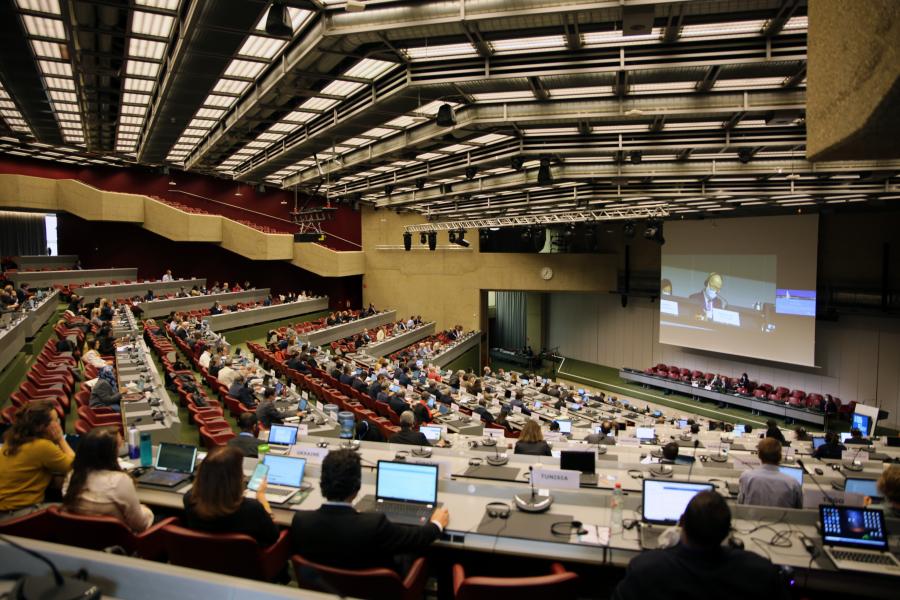QUNO attended the 57th session of the Intergovernmental Panel on Climate Change (IPCC), which met from 27-30 September, in Geneva. Climate scientists and Government Representatives discussed the organization’s budget and work programme, and complications due to the delayed production of the 6th Assessment Synthesis Report and elections of a new IPCC Chair. QUNO, speaking for Quakers under the Friends of the World Committee for Consultation (FWCC), made four interventions which can be read below or at the Earth News Bulletin here. In addition to supporting an update of climate science statistics into the delayed Synthesis Report, QUNO expressed concern that most countries fail to register their military emissions, which could compromise IPCC modelling and projections. QUNO welcomed a process to ensure that all military emissions are included in national GHG inventories.

Humanitarian Challenges in Myanmar: Navigating Conflict and Crisis
On 9 July, the Quaker United Nations Office hosted a private briefing on Myanmar’s humanitarian crisis in the aftermath of the devastating 7.7 magnitude earthquake that struck on 28 March 2025. At Quaker House, Gum San Nsang, Secretary of the Kachin Political Interim Coordination Team, briefed UN diplomats. With the monsoon season threatening to worsen the humanitarian crisis, he emphasized the need for the international community to address aid distribution issues, reminding them that “each day later is a day worse than before.” In his remarks, Gum San noted that the distribution of humanitarian assistance has been exacerbated by the dwindling control of the military junta that seized control during a coup in 2021. He explained that the military has prevented aid from reaching parts of the country not under its control, while diverting aid to its own stockpiles. Beyond the focus on humanitarian issues, Gum San also addressed the ongoing conflict situation between the military and armed resistance groups. He highlighted that the struggle to control the mining of rare earth minerals represents a major driver of conflict, especially in northern Myanmar. Currently, the UN’s Office of Coordination of Humanitarian Affairs (OCHA) estimates that 20 million people, over one […]






